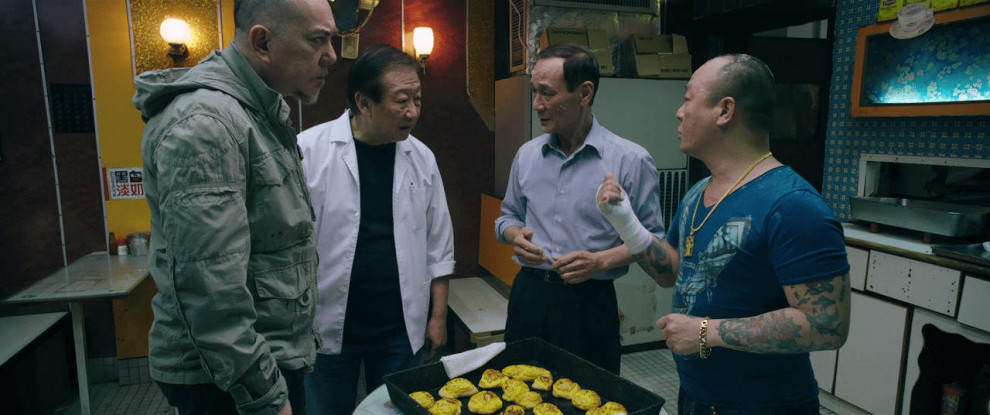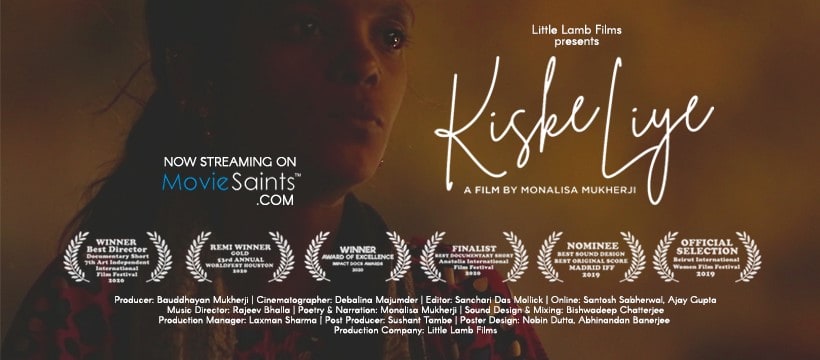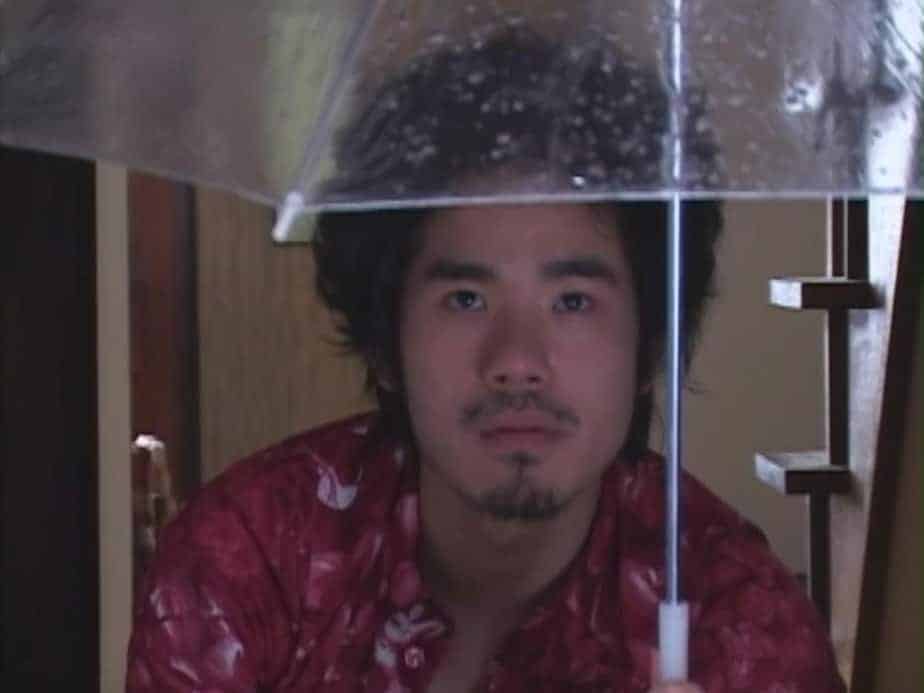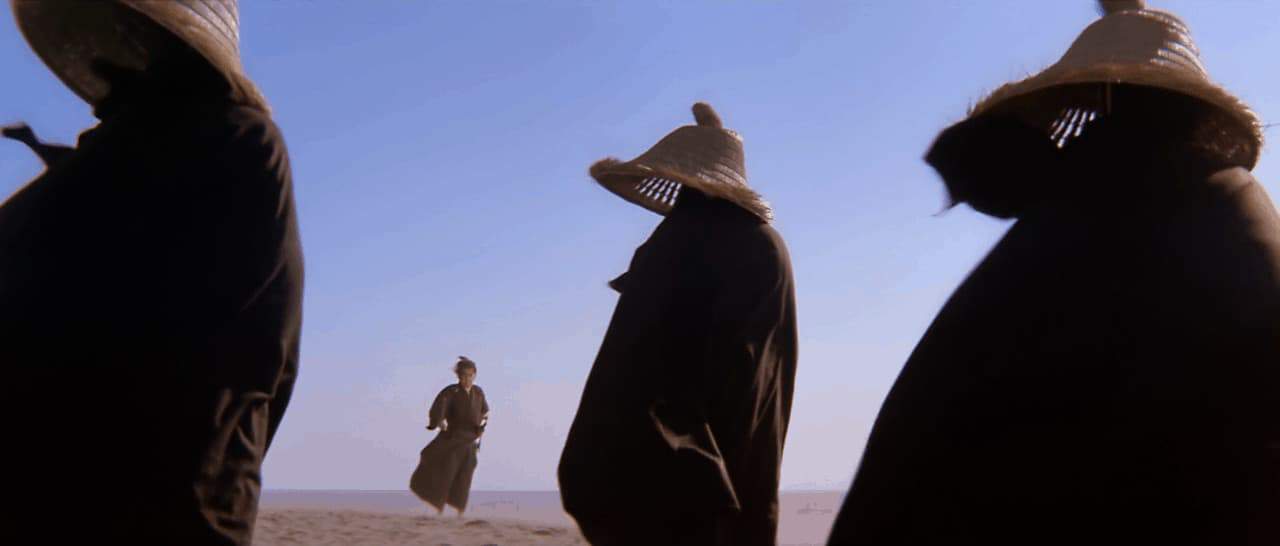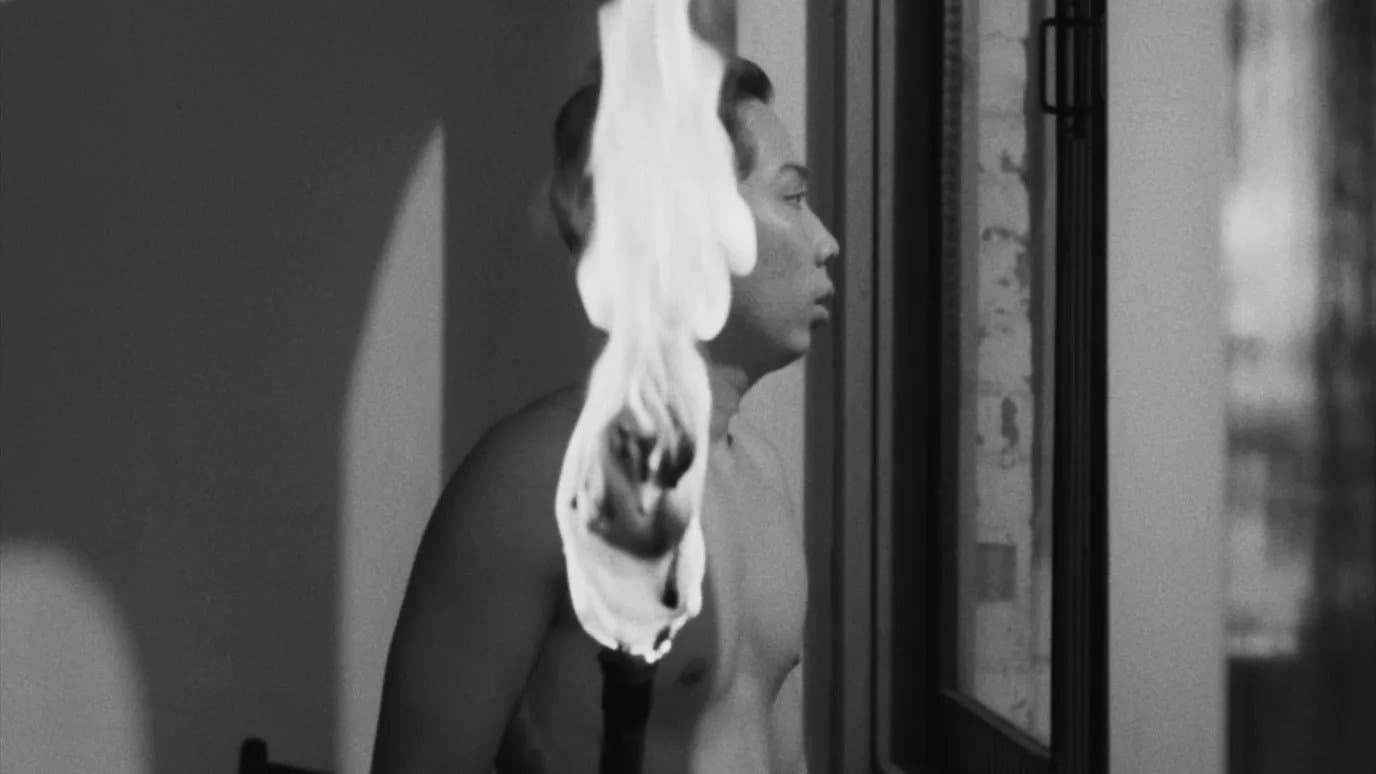The closing film of the 19th Busan International Film Festival is a hybrid of triad movie, action, romance, comedy, and drama, with the distinct HK aesthetics of the 80's and 90's and a great performance by Anthony Wong.
Buy This Title
on Terracotta
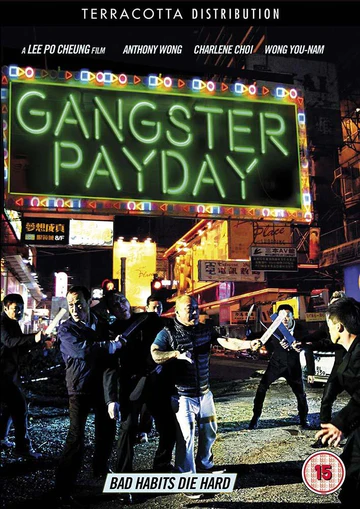
Ghost is an old school crime boss who has turned legit, operating karaoke clubs, massage parlors, and renting property. Bill, however, a rival gang leader who happens to be his cousin, pressures him to sell drugs on his establishments, and later on is hired by property developers and pesters Ghost to sell his real estate. Those properties include a traditional teahouse run by Mei, a beautiful young girl who eventually becomes the romantic interest of both Ghost and one of his young and most trusted sidekicks, Leung. Inevitably, the differences between the two gangs result in dramatic events.
Lee Po-cheung directs and writes an easygoing film that focuses on its characters rather than the story, which is predictable, apart from the outcome of the romance. In that fashion, the movie's main focus is the struggle of the old triads to make a living in this timeframe, since the contractors are portrayed as the actual gangsters of the era. Using that theme, Cheung also depicts the rapid changes that perpetually occur in Hong Kong, and the effect they have on small time entrepreneurs and generally, on individuals who are not so keen on jumping on the train of change.

However, despite some dramatic elements here and there, and some, even more scarce, action scenes, “Gangster Payday” is chiefly a romantic comedy, with May's character representing the first aspect, Ghost and his gang the second, and Leung's character situated somewhere between.
Anthony Wong is once more wonderful as Ghost, looking smooth as always (even in that haircut) and acting great in both the dramatic and the comic scenes. A distinct sample of the fact occurs in the beginning of the movie, where he keeps giving Leung bottles to smash on a rival's head and other members have to stop him. Charlene Choi is adorable as Mei, a fact stressed by both her acting and her overall appearance. Her role as the independent girl who is coerced in accepting Ghost's help is one of the film's most entertaining aspects, particularly because she seems to take advantage of him without actually realizing it. Wong Yau-nam plays a peculiar role as Leung, since he lacks the aggressiveness usually associated with triad members, and instead looks like a demure and sheepish individual, whose sensitivity though, works well in terms of the romance with May. However, the ones that steal the show are Chan Wai-man and Ng Chi-chung, that portray Ghost's elderly sidekicks, Brother 2 and Uncle B respectively. Both of them are hilarious on the majority of the scenes they appear, a fact stressed by their physique and overall attitude, since they actually used to be triad members before they became actors.
Technically, the film's obvious purpose was to present the aesthetics of the aforementioned decades and in that aspect, it succeeds, due to its retro-looking framing and the many interior shootings. This tactic also reaches the way the character's are dressed, with an old partner of Ghost's who appears towards the end of the film being a distinct example.
Overall, “Gangster Payday” is not a masterpiece, but a highly entertaining film that benefits the most from its cast and the overall loose atmosphere it entails.


